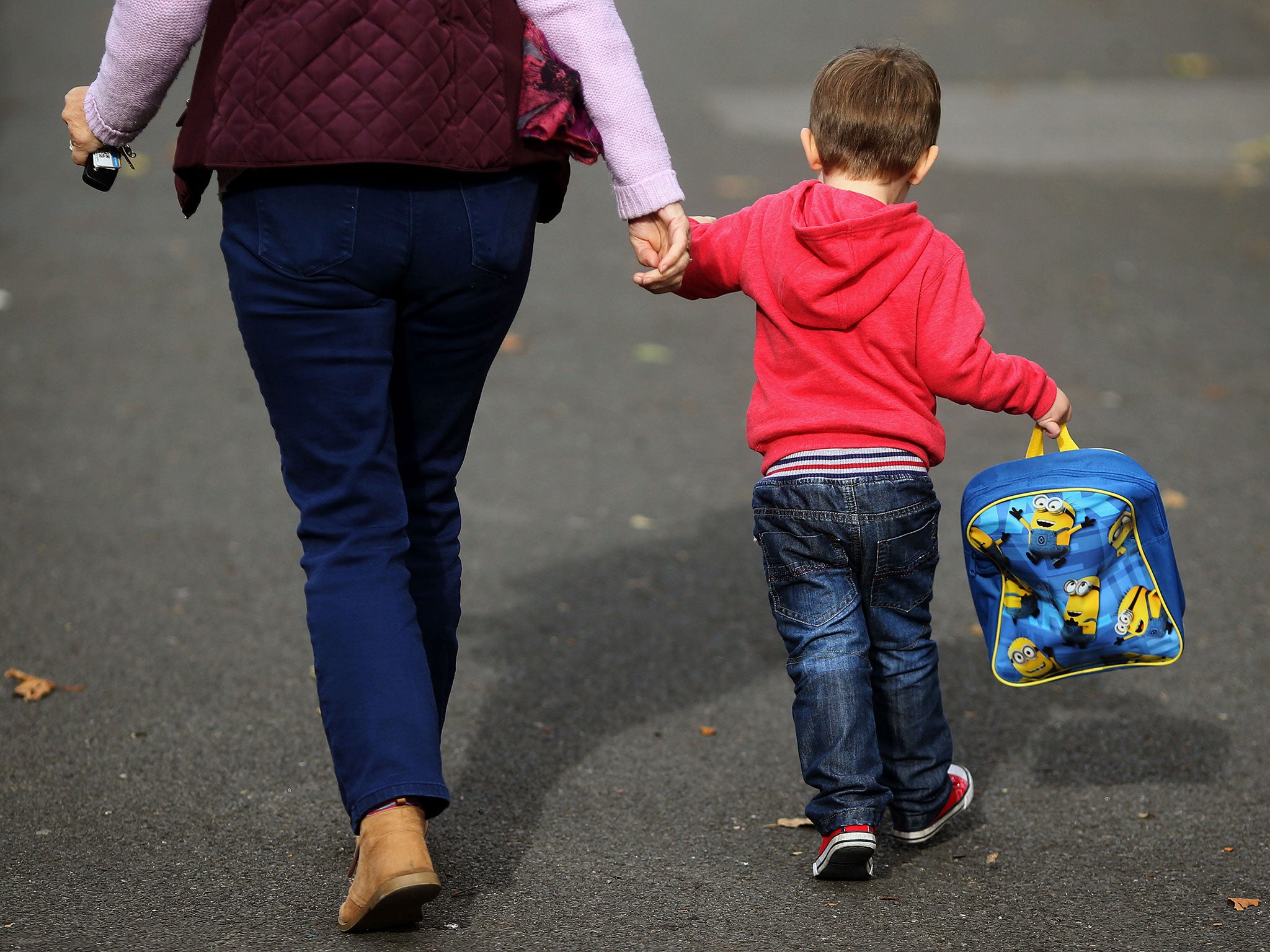It's absurd to tie being 'workless' to doing no work. Just ask a mother
GDP does not capture ‘family output’. It doesn’t measure childcare by family members, the care of infirm parents – activities with a market value


Dr Adam Perkins, a neurobiology lecturer at King’s College London, wants us to face an inconvenient truth. The welfare state “is eroding the economic and social prospects of the nation by increasing the proportion of individuals who possess the employment-resistant personality profile”.
That’s a heck of a conclusion – and one that has, predictably, been seized on with glee by anti-welfare commentators. So what evidence does he have to back it up?
One strand of Perkins’ reasoning outlined in his book, The Welfare Trait, is that he claims to have identified a “positive linear association” between a family’s reliance on welfare and the “average levels of reproduction” in that family. “The higher the proportion of unemployed adults in a household, the greater the number of children that it contains,” he tells us. And to prove it he produces a chart showing that “working households” have an average of 1.63 children, while “mixed households” have an average of 1.74 children and, finally, that “workless households” have an average of 1.83 children. So: an upward sloping trend. More welfare apparently means more children.
But hang on, what are these “mixed households”? It turns out they contain “both working and workless adults”. Oh dear, that’s rather close to home: it describes my own circumstances. My wife recently gave up her job to look after our two young children full time. We’re not drawing any state benefits. And my wife fully intends to return to work when the children are older. She’s not going to let her academic qualifications, acquired with much hard work (not to mention accumulation of debt) go to waste. And yet there we are – the middle point of Perkins’ upward sloping chart, running from relatively abstinent virtue to fecund fecklessness.
As many people have pointed out, Perkins’ research is weak. “Workless” in the data from the Office for National Statistics he cites does not equate to “unemployed”. People can be workless because they have removed themselves from the labour force to look after children, or because they are studying, or because they have chosen to retire early. Nor is it a proxy term for those in receipt of state benefits.
There are lots of other reasons to reject his conclusions too, not least his dubious contention that the mere receipt of benefits makes people psychologically “employment resistant”. Yet I want to focus on Perkins’ “workless” mistake, not only because it is close to (my) home but because it inadvertently highlights something about the way we think about economic activity.
My wife’s decision not to return to paid work after our son was born last year was a close-run thing. Full-time childcare for two children (factoring in our irregular working hours) would have cost almost as much as her salary. Returning to work would have made us, as a household, no better off. My wife loved her job, but there was no substantive financial incentive to return. She decided that, on balance, she’d rather look after our children than pay someone else to do it.
But let’s think about the implications in terms of the national accounts. There is only one income instead of three as a result of her decision: I still have my salary, but my wife now has none of her own (she is “workless” as far as national statisticians are concerned), and a nanny or childminder who might have been paid by us is not.
Yet consider the substance of what’s happening. This is still economic activity taking place – two children are being cared for – and that has a market value: the cost of the childcare by a third party. The difference is that no money changes hands (at least not formally; my salary supports my wife and our children).
There’s also, actually, greater social value for us as a family thanks to the choice. Nannies, childminders and nurseries can be wonderful but, as many parents will attest, it can also be stressful and guilt-inducing when someone else is looking after your very young children. That doesn’t, of course, apply to everyone. Other people in different jobs, or on different incomes, will make different choices depending on their circumstances. But the point is that GDP doesn’t capture “family output”. It doesn’t measure childcare by parents or grandparents, the care of infirm parents by their children, or the support of disabled friends or relatives. These are all activities that have a market value in that you would have to pay someone else to do them.
The national accounts also don’t reflect the economic value of people who do volunteer work. Andy Haldane, the Bank of England’s chief economist, calculated a few years ago that volunteering in the UK might account for as much as 4.4 billion hours a year, which is just shy of 10 per cent of the total hours worked by all UK paid employees. Research by the ONS suggested that the value of informal childcare for all children in the UK in 2010 was £343bn, or 23 per cent of GDP.
So where does this take us? Not to the conclusion that we should ignore the current measures of GDP, which tell us important things about our prosperity; nor should we necessarily seek to meddle with such traditional measures by including “imputed” childcare or volunteering output. That introduces all sorts of measurement difficulties.
It certainly doesn’t take us to the conclusion that public policy should discourage women from returning to the workforce after they have had children, particularly when their children reach school age. Formal work is an intrinsic good, often giving people a sense of pride and purpose. No one should be blasé about the value of having a job.
But let’s bear in mind what the official statistics upon which economic debate often tends to focus fail to capture. Raw national output or employment figures should not be fetishised by politicians, or made a kind of benchmark for national success as they sometimes are. One used to find stencilled on to the walls of pubs the slogan: “wine is a good servant but a bad master”. Perhaps we should think about GDP in the same way.



Join our commenting forum
Join thought-provoking conversations, follow other Independent readers and see their replies